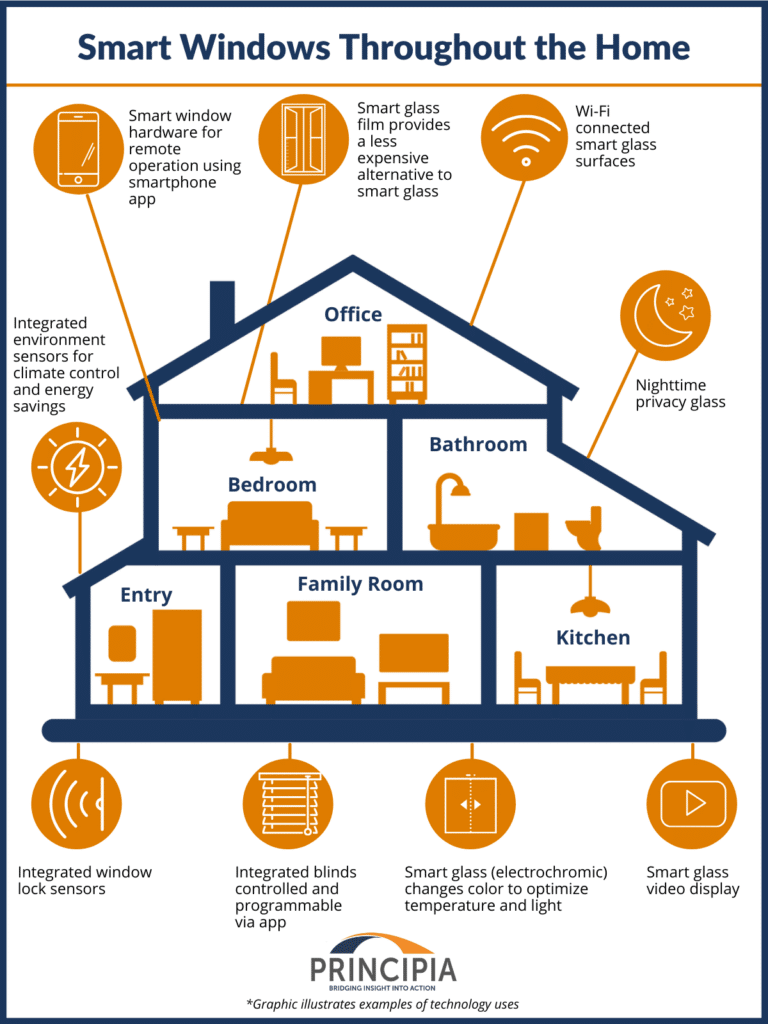Smart window technology is gaining traction in the United States residential windows market as smart glass technology advances and adoption spreads. The increasing application of smart glass in the commercial market bodes well for residential adoption. View Inc. and Saint-Gobain’s SageGlass dynamic glass products have been installed in hundreds of commercial buildings such as Facebook headquarters and Mall of America. Residential window manufacturers are taking note of this movement. Marvin recently announced an alliance with Halios, a manufacturer of electrochromic daylight management systems, to bring smart glass to the residential market. Last year, Cardinal Glass, a major glass supplier to residential window manufacturers, announced a development partnership with Click Materials, now rebranded as Miru Smart Technologies, to significantly reduce the cost of producing electrochromic glass.
Tech-savvy homeowners appreciate the convenience and energy-saving capabilities of smart windows with features such as lock sensing, temperature and light control, and the ability to manage and control operation remotely through Wi-Fi connectivity and smart phones. According to Principia’s 2021 research, popularity of smart window products is increasing among homeowners with 84% of window contractors agreeing with this trend. The benefits of smart windows are starting to outweigh the barriers such as high cost and lack of built-in integration with smart home platforms. Smart window adoption will likely follow the same curve as smart home adoption. As technology advances and becomes less expensive, and as more manufacturers provide cost-effective, integrated options, adoption of smart glass and smart windows in residential homes are expected to increase.

As technology advances and becomes less expensive, and as more manufacturers provide cost-effective, integrated options, adoption of smart glass and smart windows in residential homes is expected to increase. Contact us today to learn how Principia’s consumer research products and residential windows demand data can help manufacturers navigate the future of the windows market.